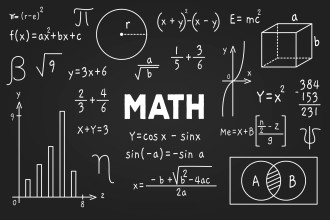Introduction
The art of debating can be described as an extracurricular sport you've probably seen high school's roster of teams or clubs. But it's more than merely a competition. It's also an intellectually challenging method of learning as well as a method for making decisions. Going back to the legendary people who spoke to the public and even rhetoricians from the past of Greece state that debate allows participants to discuss and compare with opposing views. Debating also plays a crucial role in your assignments by presenting a strong argumentative basis. For easing this process, Treat Assignment Help provides assignment help for formulating authentic notes for a wholesome presentation on various assignment topics.
Assignment writing services offered by experts of Treat Assignment Help is also aimed to assist you in various academic fronts and debating activity is one of those. To form a concrete layout for a winning draft on debating one needs to be have excellent drafting and writing skills. This can be achieved through taking assistance from our assignment help experts. Treat Assignment Help is regarded to be the best assignment help provider by numerous students all across the world. This is because of excellent delivery of write-ups by our expert writers within the stipulated timelines.
Peculiarities linked to the term “Debate”
In the school setting, the term "debate" is often used to refer to different meanings. Debate (usually with a capital D, and usually defined in a particular style or format is a loved activity in the world of competitive sport, not just played by students in the United Kingdom, but also globally.
There is also debate (with lowercase D) which is a typical academic activity, particularly for social sciences classes. More casually it is the kind of argument we have often encountered with our families, friends or even strangers that is usually associated with disputes or arguments.
Treat Assignment Help provides assignment help in UK so that no student is left out from the scope of excelling in the art of writing impressive drafts and grabbing higher grades in their academic life. When you read this article and are looking to learn more about the basics of debate and deciding whether joining a debate team is the right choice for you or not. Perhaps you're in the process of searching for interesting debate topics to discuss in the classroom.
Whatever the reason you are looking to get involved in the debate (and Debate), you will find a comprehensive and philosophical overview of debate in this article, as well as guidelines on issues and discussions on Debate in the context of an additional curricular pursuit. We'll discuss debate tips and debate techniques. This guide is a complete outline of how to engage in debate and thereafter winning in this endeavor. We'll also explore topics like what is considered a great debate topic as well as some examples of debates that are controversial and give ideas for debate topics students can use for acquiring good grades.

While choosing the right topic for your project, you need to take into consideration the following points:
-
It must be something that the debaters and their audience personally feel more connected and intrigued.
-
It must be pertinent.
-
It is important not to be too narrow, nor be too wide.
-
It must be interesting.
-
Debtors should be able to gather the necessary and supporting documents for their arguments.
-
Should have value ingrained in it.
How to Debate
Since debates only occur when people argue, the first thing you need to learn is to be able to argue and how to structure arguments in a clear convincing, compelling, and a persuasive way.
Effective arguments begin with a convincing, debatable claim, much like the thesis statement in an argumentative essay that you may have been required to write in class. In order to reach at the stage of the possibility of a debating, two distinct and mutually exclusive points of view have to be assessed against one another.
Establish a Clear Position Statement
An effective method of framing one's position in the debate is to identify which side one's on, and then provide a few important reasons that show why one side is superior. These arguments can be further elaborated as arguments, or contentions, to add detail and facts and figures to back up the main assertion.
Let's say you're debating over the topic “Whether school going students should or should not wear uniforms”. Now, you're going to defend the statement that uniforms should be compulsory. This places you on what could be referred to as the affirmative, propositional or favorable side.
It is clear from the statement that you're on the pro (not opposition) part of this discussion, since you claimed, "schools should require students to wear uniforms." It is also simple to see the sub-arguments or assertions that you present during this debate to back your argument, as you may outline the three main reasons to support your argument that are: reduces bullying as well as saves families money and builds a more positive school culture among learners.
Articulate a Framework
Before you can formulate your arguments to support your position further, it's important to develop an overall framework to guide the discussion. A framework, as it is commonly referred to be a method of assessing something and deciding the factors we need to consider when making a choice.
In the discussion about school uniforms, for instance the basis for the discussion could be:
There are many different ways in which this issue could be approached this is the reason why creating the right framework is essential. For instance, the framework can involve the arguments that we must be concerned about student's mental health and happiness most of all. And also, we should think about reducing inequality and encouraging fairness as the first priority.
However, against arguments can also be illustrated with a strong resemblance. Fashion is closely tied to tradition and culture as an example, and uniforms diminish the value symbol of cultural the diversity of clothes, for example, students who have recently immigrated wearing a traditional outfit from their native country, may find this very hesitant to go in uniforms and this may hinder their learning process.
In addition, clothing is utilised to communicate crucial political message or show the support of causes, for instance, the 'Black Lives Matter T-shirt.’ Therefore, while students may feel a stronger sense of belonging, it can be at the expense of exposure to the culture and learning that are provided through fashion.

Present Your Case and Take Notes to Make Counter Arguments
Great presentations require thoughtful and articulate use of language. There are various ways to convey an idea and enhance public speaking abilities that will create maximum impact amongst spectators. In addition, various variables can be manipulated based on their linkage to the voice. For example: volume, pith, tone, and pace can be adjusted based on the scenario and intensity of the argument.
Taking notes adds helps in structuring your point of view and an effective form of presentation. It also aids your entire journey of delivering the information as you’ll be crystal clear with regard to your opinions that would eventually lead you to excel in posing strong counter arguments.
In response to your opponent's arguments, it's important to record your arguments and clearly identify the points of your opponent that relate to your specific responses.
How to Win Any Debate
The most skilled debaters realise the two principles that are applicable in every debate: there is always a discussion between two sides and there always are advantages and disadvantages for both sides.
Do not adopt the "all-or-nothing" mindset in debate. Sometimes, the most intimidating option is to defend an idea that's poor or problematic and makes only little or no positive changes. If you're in that situation do not despair.
The most important thing is to consider the comparative consequences at your position and advocate arguments that aren’t backed by the facts, The debate isn't about the many possible solutions and solutions to issues; it is all about the ideas and solutions that participants bring to the debate forefront.
Take another example: There are those who believe that bans on soda won't prevent people from drinking all soda therefore we shouldn't completely ban soda in the first place. This is one of the "all-or-nothing" mindset. However, let’s consider that soda ban or similar prohibitionary policies are better than alternatives, and create greater positive change than alternatives, it may be the most beneficial option.
The ban on soda could stop only half of people from drinking soda, but it's better than not preventing everyone from having soda, especially considering the way soda can contribute to obesity, diabetes, and other health issues. It's important to remember that, even if the result isn't as optimal, there's some positive effect to be made.
Remember that the job of debaters isn't to solve the issue. It's simply to resolve it more effectively than the opponent.
When considering comparatives in debate, it's useful to consider the ways in which people and things might be altered when considering the debate.
You may be debating on the topics like: changing a social convention so that feminism can be more popular in the society. For instance, perhaps you're debating whether it is appropriate to have separate terms like "Miss," "Ms." and "Mrs." assigned to women to reflect marital status or whether every woman, no matter marital status are to be addressed by the name of "Ms.". Men and women who are socially conservative (and females) who have been against feminists for the majority of their lives aren't going to make any changes in the near future on this specific matter. In the same way serious feminists will not change their mind also.
The question is who's on the fringes of the discussion? What are the people who are in the middle ground that can be affected in one way or the other?
In order to win any debate, it is essential to make the comparison extremely clear. It is essential to present a narrative to the public or the judge so that it is obvious to justify the reasons for your side and the reasons why supporting your opponent's side does not turns out to be fruitful.
One method to accomplish this is to discuss what's known as votes at the conclusion of the debate. The issue of voting is an important reason for you to be able to win the debate. In your discussion of every vote during the debate, your aim is to evaluate your arguments over the course of the debating. You will then consider each side's arguments to determine the reasons you were successful. Maybe you've presented more credible, solid evidence. Or maybe you've analysed the negative consequences of your actions in the opposite direction. Perhaps you've proved the benefits of your position that your opponent has not contested during the debate.

10 High-Yield Debate Tips
-
Clash: Spend the same amount of time thinking about defense, defending, and expanding your own arguments, while criticising, attacking and reacting to your opponent's arguments. The best debates occur when there's a clear and direct interaction with the form of a confrontation between opposing sides.
-
Framework: Always connect arguments to a structure for evaluation. When you debate, you are trying to prove your points on your own, while explaining to your audience what they need to think about when the way they evaluate and judge each argument you present.
-
Stay cool: Debate can be unproductive and is often extremely unpleasant for viewers and participants alike when the participants become angry and hostile.
-
Research: Always be prepared with specific evidence and an abundant amount of information about the subject. You'll need to think out of the box and change your approach to your needs however there's no alternative to knowing what you're discussing well beforehand.
-
Learn to speak in public: Practice with a partner or with a friend prior to an actual competition or event. Your communication and public speaking skills particularly will benefit from regular practice.
-
Anticipate: Before you can challenge your opponent, formulate counter arguments in your own argument. It's helpful to keep an inch ahead of the adversaries instead of constantly being in the middle.
-
Make use of rhetorical strategies: Alternate the strategies of persuasion you employ. Certain people are drawn to stories that tug at their hearts and appeal to their emotions. On the other hand, some people like cold, concrete facts or data and facts.
-
Study great debaters: Watch debates on video by experienced debaters, particularly elite teams from renowned universities on the Internet.
-
The mindset of growth: Be open to criticism and don't feel that you have to take losses personally. Instead, ask your fellow spectators and judges for suggestions on how you can improvise, and remember each debate offers an opportunity to refine and improve your abilities to a much greater extent.
-
Change your routine: Engage in debate (thoughtfully and courteously!) on a variety of topics with a variety of people (e.g. various ages, differing opinions, diverse cultural backgrounds) to build a broad foundation of knowledge and the necessary skills.
The Bottom Line
There are countless benefits of possessing the art of debating and developing the entire drafting skills beforehand. However, the present academic scenario does not stand at par with the desired level of excellence on various writing forefronts. To provide a permanent cure with this widespread concern, the team of expert writers at Treat Assignment Help is dedicated to deliver excellent quality assistance with our online assignment help and numerous other academic tasks that involve the use of writing skills.
Our writers are highly educated and trained in their field of knowledge area and aspire to make a significantly positive difference in your assignments.
All you need to do is visit our website and contact our customer support team to seek expert guidance.







